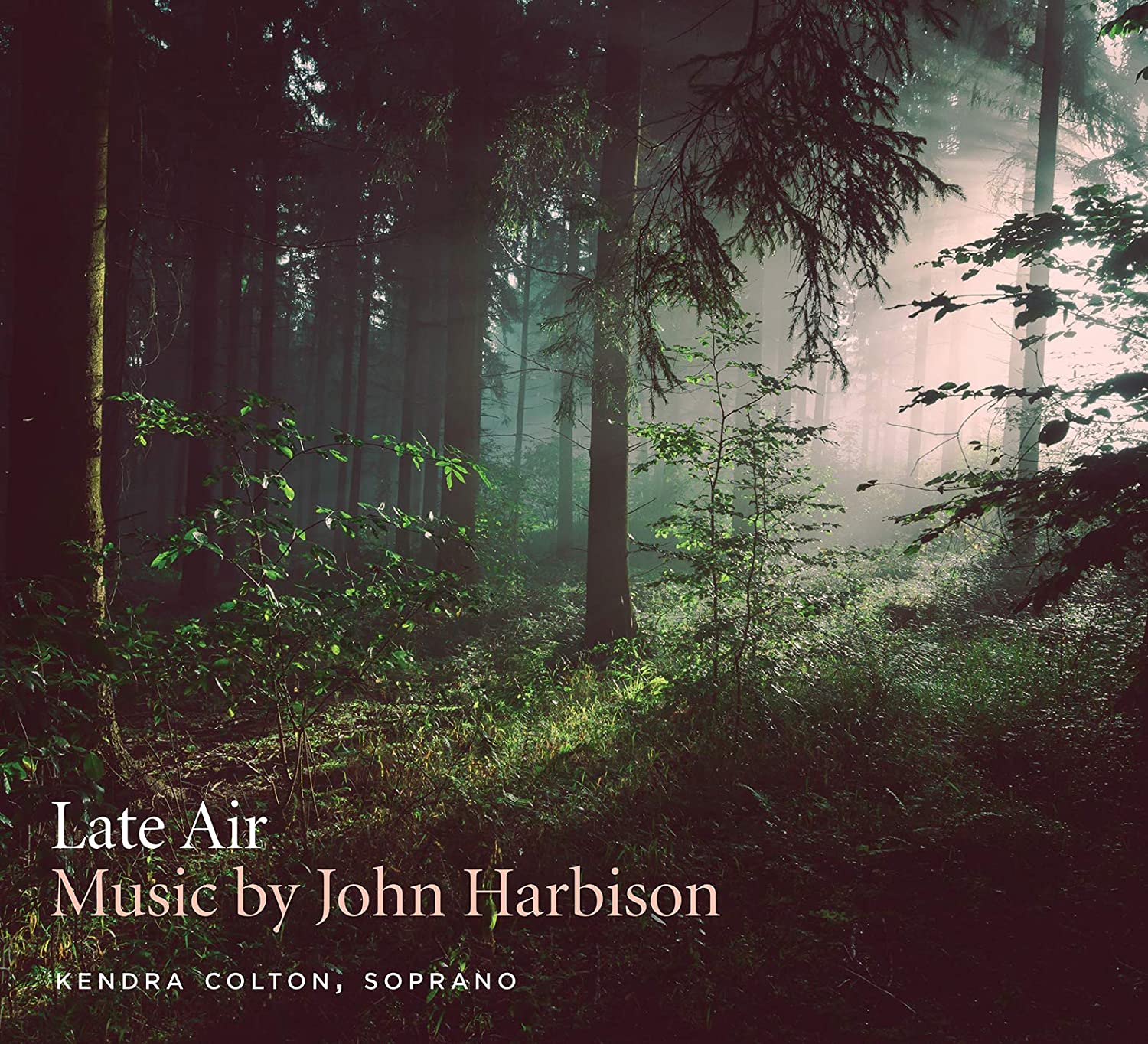by Mike Telin

The disc opens with Mirabai Songs from 1982, the oldest composition on the album. Mirabai wrote her ecstatic religious poetry in 16th-century India. When her husband was killed in a war when she was 27, going against custom, Mirabai refused to die on his funeral pyre. These six poems (translated by Robert Bly) were written to Lord Krishna, The Dark One, who has now become her husband.
Harbison has set the texts abstractly. The busy piano parts have the feeling of ostinatos against which the vocal lines are almost secondary. Colton’s diction is impeccable, her singing agile and responsive to mood changes in the poetry.
In number three, “Why Mira Can’t go to Her Old House,” Colton graphically delivers the lines:
I have felt the swaying of the elephant’s shoulders
and now you want me to climb on a jackass?
Please be serious.
And in number five, “The Clouds,” an emotional lament to the Dark One, Colton demonstrates her expansive vocal and dynamic range.
Throughout the cycle, pianist Kayo Iwama is an attentive collaborator who dispatches the work’s continuous thorny lines with canny ease.
The rest of Harbison’s settings come from the 21st century. Here his instrumental lines are more integrated with the voice. The two elements work together to create more unified text painting.
Harbison brings his jazz piano chops and his experiences in the vocal jazz world to his settings of After Hours, three songs with texts by Murray Horwitz. They fit Colton’s voice and musical personality perfectly. Her performance brings a smile to your face and makes you want to sing along. This set is the highlight of the album and benefits from the artistry of pianist Sanford Margolis — you can feel the jazz idioms running through his veins.
North and South (2002) sets six folksy, down home texts organized by poet Elizabeth Bishop into two books, each beginning with a Ballad for Billie, written with Billie Holiday in mind.
“Ballad for Billie I” from Songs for a Colored Singer is a bluesy song about keeping up with the Joneses (‘The more we got the more we spend’). Colton and Iawama present a stunning interpretation of The album’s title track, “Late Air,” where Bishop compares midnight radio-singers to phoenixes nesting on the Navy Yard aerial.
Harbison’s setting of number four, “Ballad for Billie II” is a whimsical, laid-back groove with an adult theme — he’s cheating on her and she’s had enough.
I’m leaving on the bus tonight
I’ve borrowed fifteen dollars’ fare
and it will take me anywhere
For the final set, Crossroads (2013), Colton is joined by oboist Peggy Pearson and the Oberlin Contemporary Music Ensemble, directed by Timothy Weiss. Here, Harbison sets three poems by Louise Glick from A Village Life, reverting to his more abstract style.
The poems, introduced by brief instrumental interludes, address the cycle of life. “Twilight” begins with a lyrical oboe line over pizzicato strings. As day moves into night and the seasons change, Colton sings “I let it go, then I light a candle.”
“Primavera” is short, with the oboist imitating the peeping of birds and a sudden change of texture as “spring comes quickly.”
“Crossroads” begins with an expressive dialogue between oboe and solo violin. The song’s beautiful and intense poetry — “it is not the earth I will miss, it is you I will miss” — brings the piece to quiet closure.
Released on the Oberlin Music label, Late Air is an intriguing snapshot of Harbison’s vocal music, wonderfully brought to life by Colton and her colleagues.
Published on ClevelandClassical.com July 16, 2020.
Click here for a printable copy of this article


